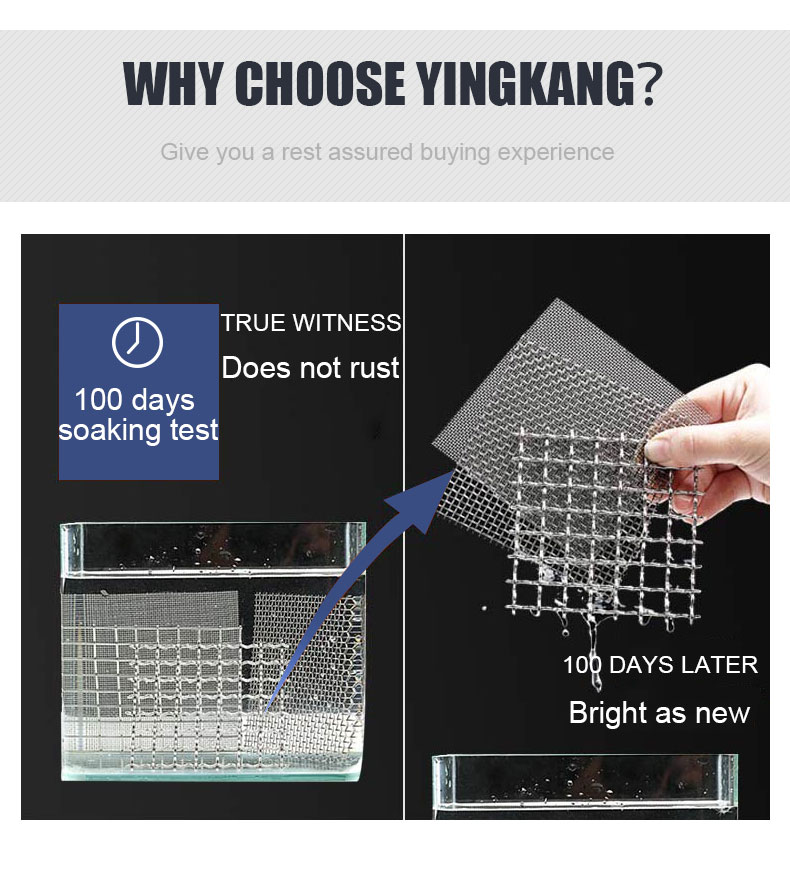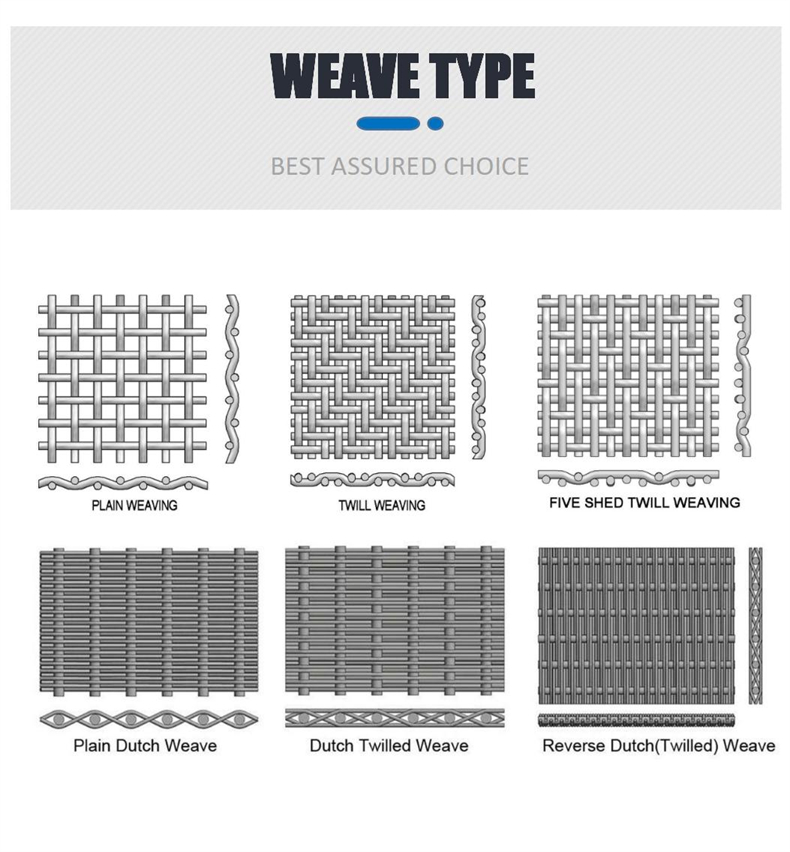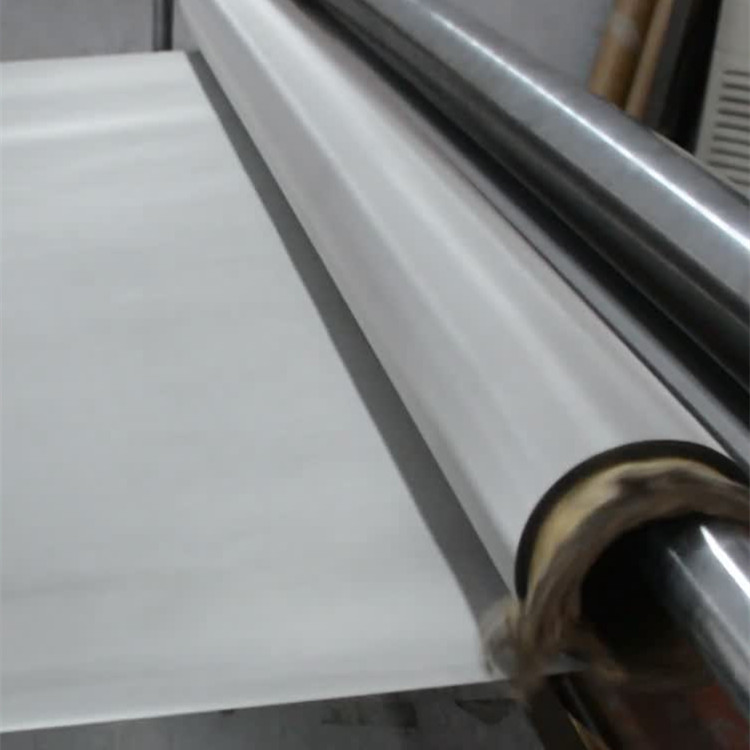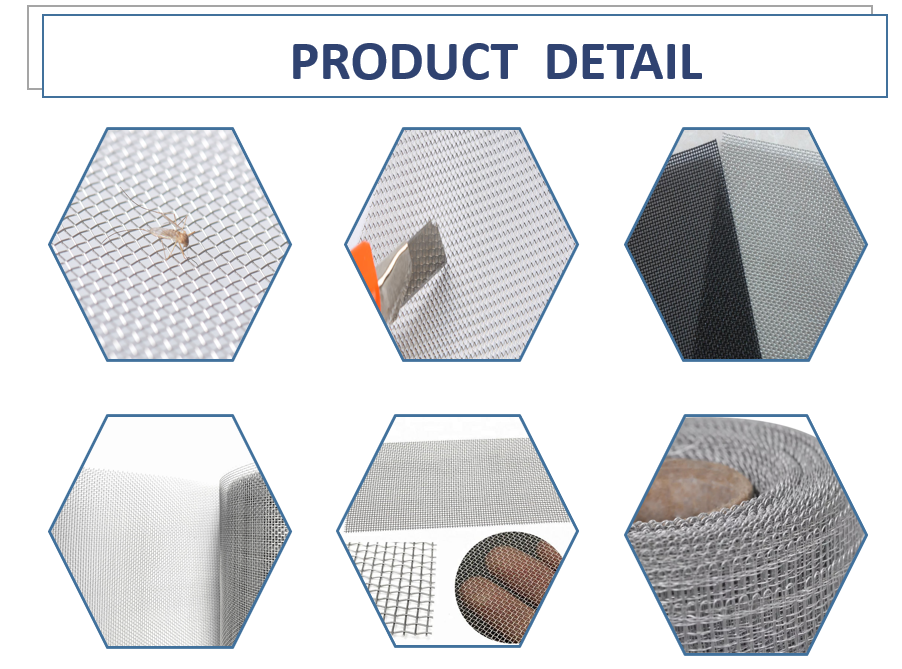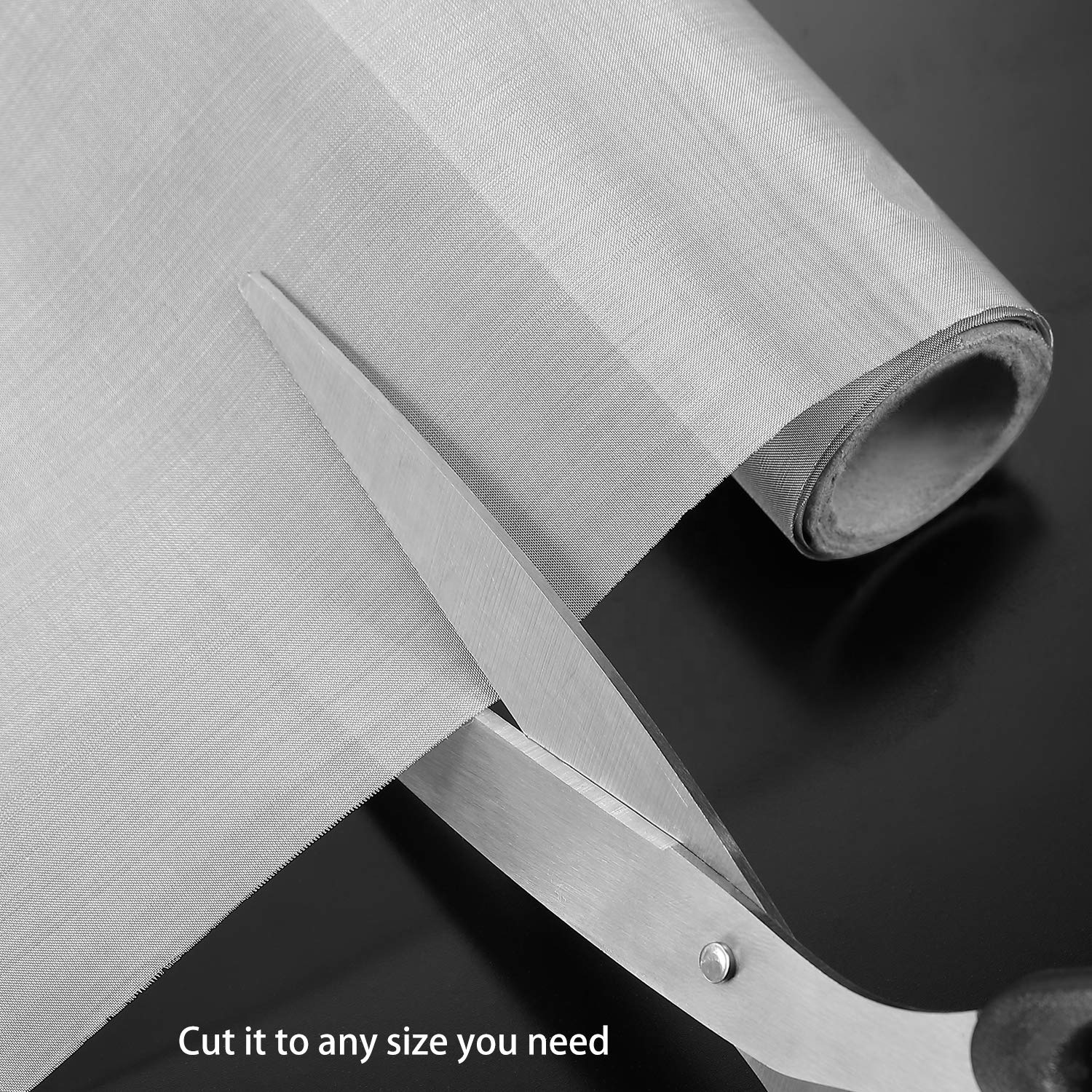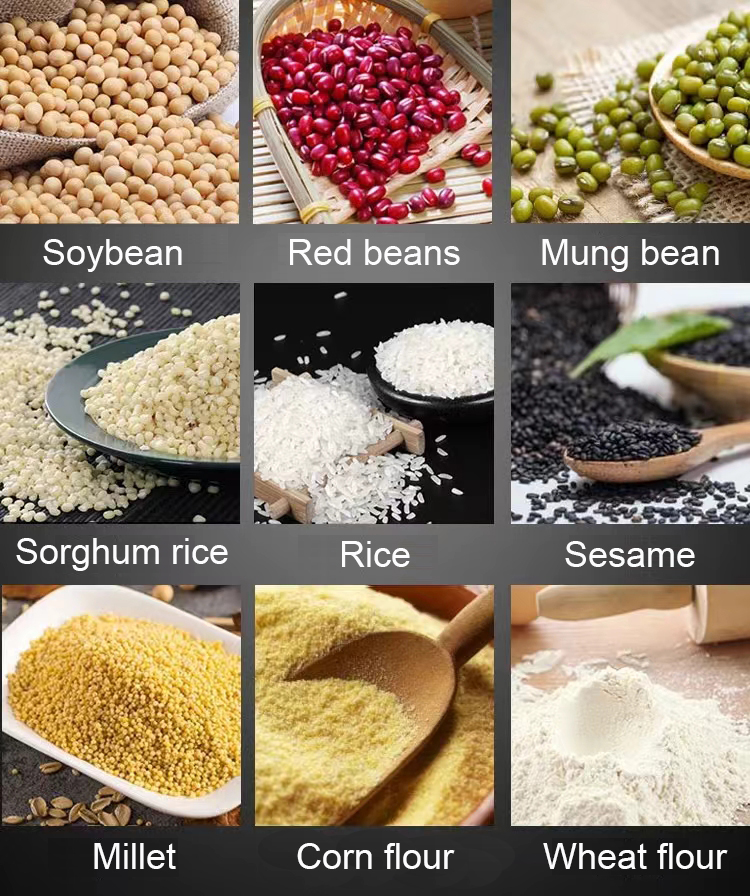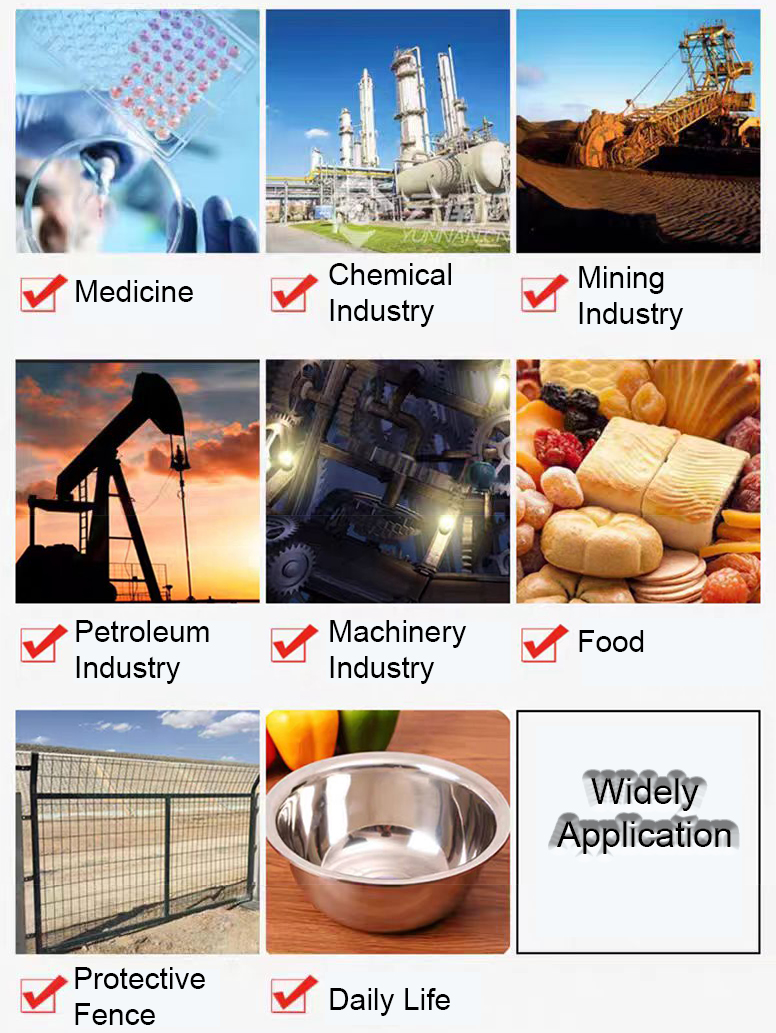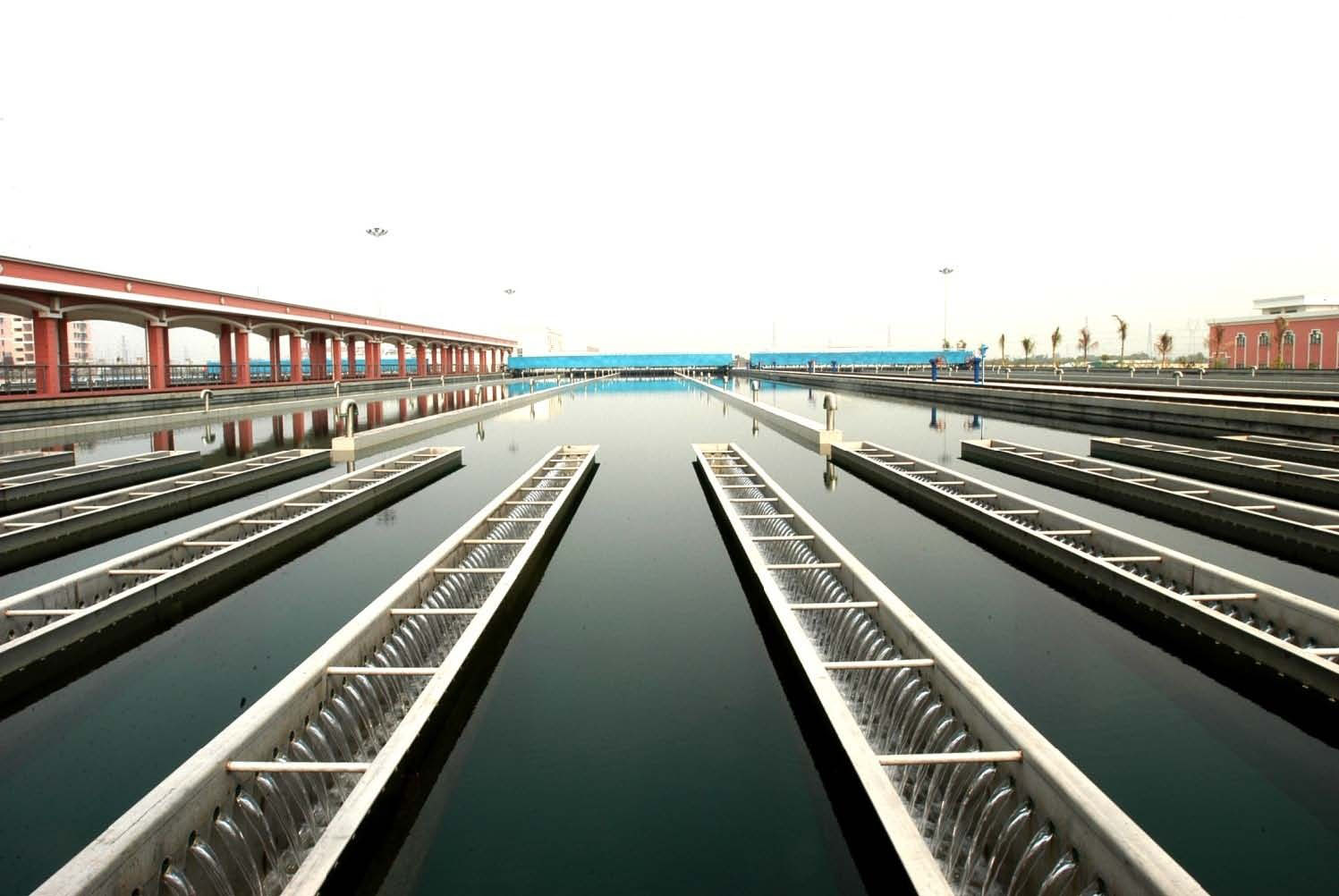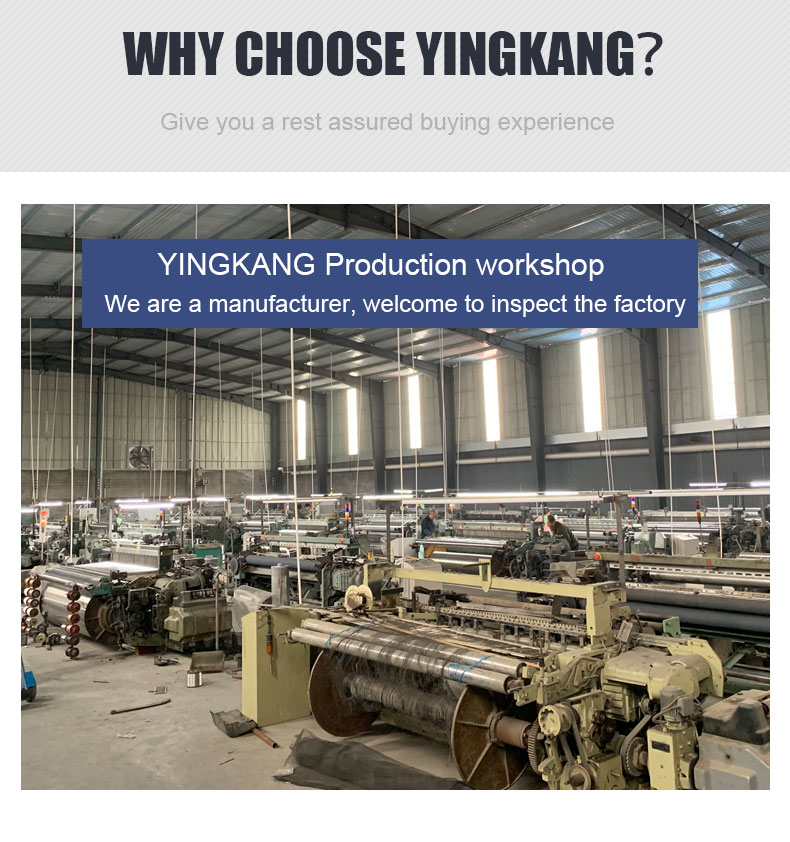- Mesh Size and Filtration Rating: Choose the appropriate mesh size based on the required filtration rating and
the particle size you need to remove.
- Material Grade: Select the appropriate grade of stainless steel (e.g., 304, 316, 316L) based on the application
and the environment's corrosiveness.
- Operating Conditions: Consider the temperature, pressure, and chemical environment in which the mesh will
be used to ensure it meets the necessary specifications.
Key Features
1. Material: Typically made from high-quality stainless steel, such as 304, 316, or 316L, which provides excellent
corrosion resistance and durability.
2. Weave Type: The Dutch weave involves a unique weaving pattern where the warp wires (longitudinal) are thicker
than the weft wires (transverse). This results in a very fine and dense mesh, ideal for precise filtration.
3. Filtration Rating: The mesh can achieve very fine filtration ratings, often down to sub-micron levels, making it
suitable for highly demanding applications.
4. Strength and Stability: The combination of thick warp wires and thin weft wires provides both strength and
stability, ensuring the mesh maintains its shape and integrity under pressure.
5. Temperature Resistance: Stainless steel can withstand high temperatures, making the mesh suitable for use
in high-temperature environments.
Applications
1. Pharmaceutical Industry: Used in the filtration of liquids and gases to ensure purity and sterility.
2. Food and Beverage Industry: Filtration of beverages, oils, and other food products to remove impurities.
3. Chemical Industry: Filtration of acids, alkalis, and other corrosive chemicals.
4. Water Treatment: Filtration of water to remove fine particles and contaminants.
5. Petroleum and Gas Industry: Filtration of fuels and lubricants to ensure they meet high standards of purity.
6. Laboratory and Research: Used in laboratory settings for precision filtration in experiments and research.
7. Automotive Industry: Filtration of engine oils and other fluids to extend the life of components.
Benefits
1. High Precision Filtration: The fine and dense structure of the Dutch weave allows for the removal of very small
particles, providing high-quality filtration.
2. Corrosion Resistance: Stainless steel resists corrosion, making the mesh durable and long-lasting even in harsh
environments.
3. Heat Resistance: Can withstand high temperatures without degrading, making it suitable for a wide range of
applications.
4. Mechanical Strength: The unique weave pattern provides both strength and flexibility, ensuring the mesh can
handle high pressures and mechanical stress.
5. Easy to Clean and Maintain: The smooth surface of the stainless steel makes it easy to clean and maintain, reducing
downtime and maintenance costs.
